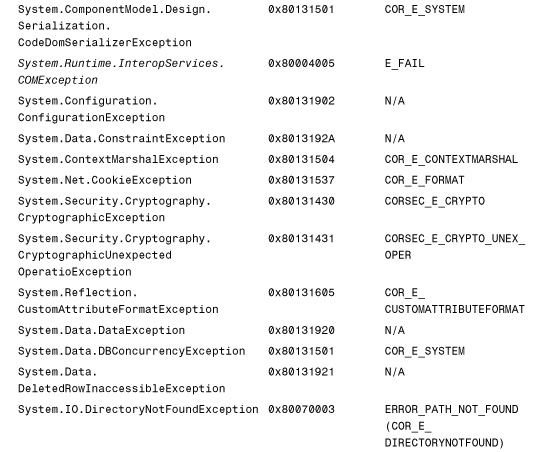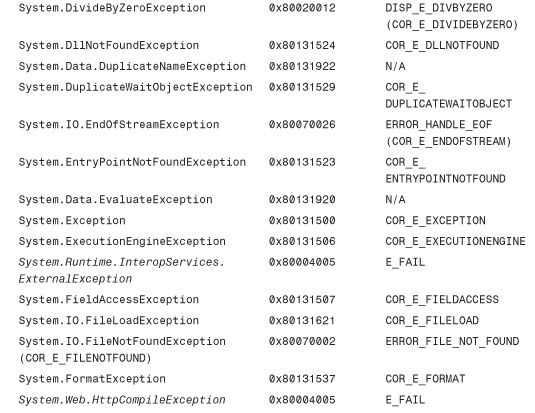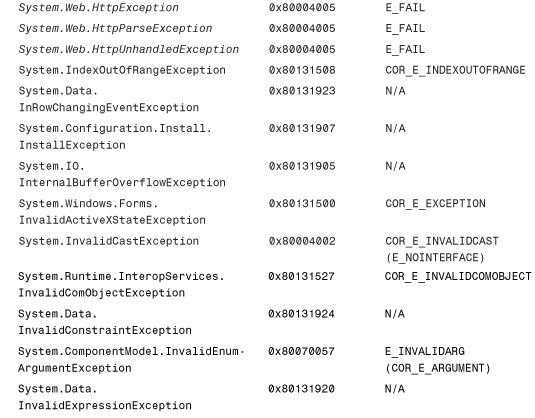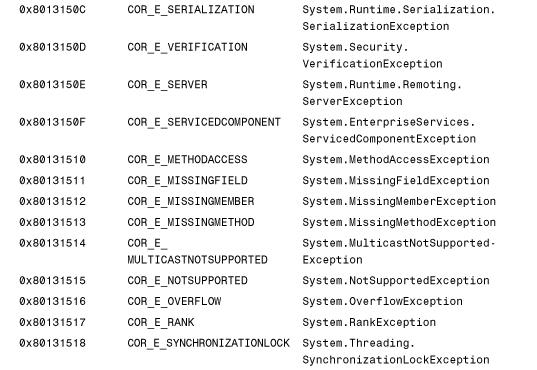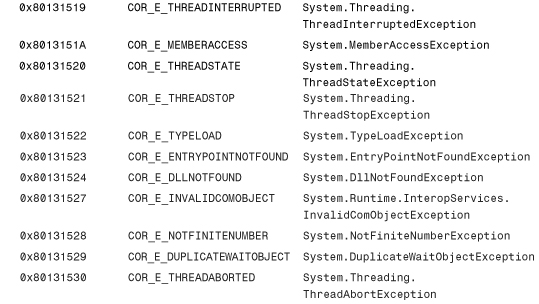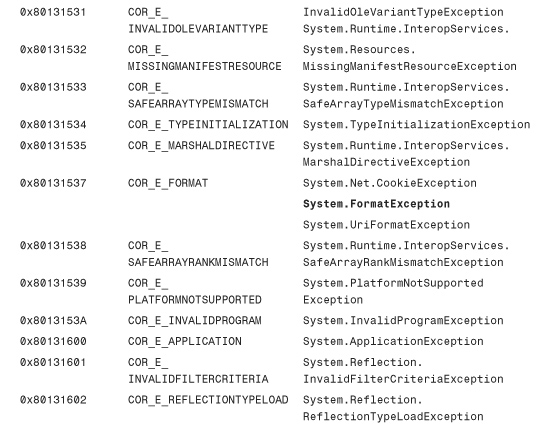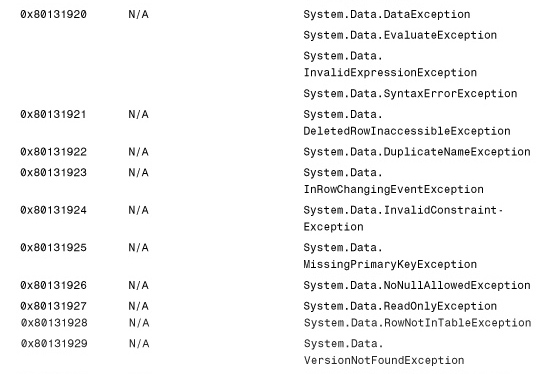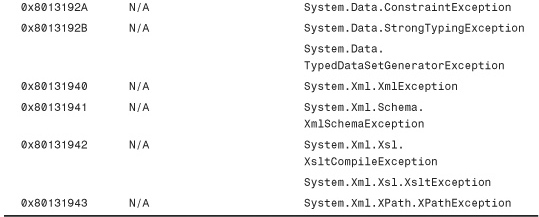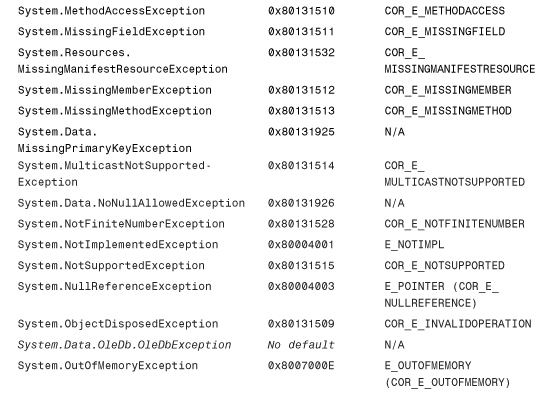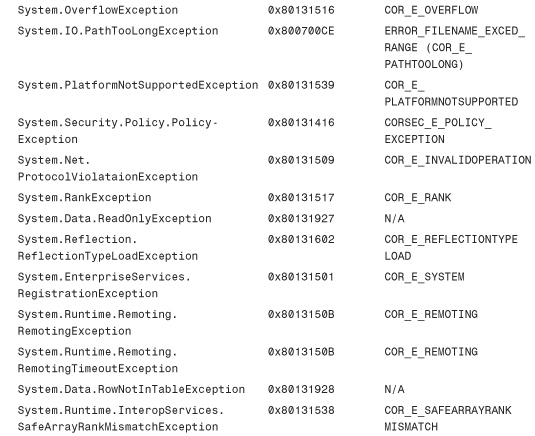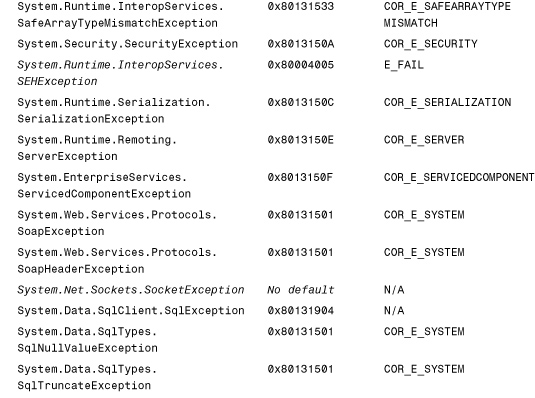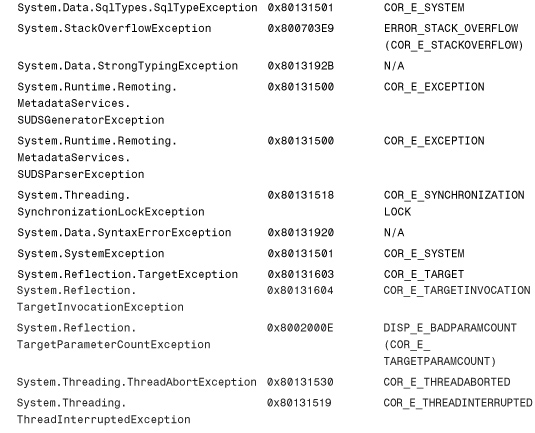Appendix D. .NET Exception to HRESULT Transformations
Every .NET exception type has a protected HResult field that is exposed to COM as an HRESULT when the exception is thrown. This appendix lists the HRESULT value for every .NET exception defined in the .NET Framework—more than just the mscorlib assembly.
Table D.1 lists the HRESULTs numerically, answering a COM programmer’s question, “What .NET exception was likely thrown to cause this failure HRESULT?” Some of this information can be obtained programmatically by calling the System.Runtime.InteropServices.Marshal.ThrowExceptionForHR method, but only for a subset of the HRESULTs. The word “likely” is used because, in general, it’s impossible to know what .NET exception was thrown from an HRESULT value alone. This is true because:
• Many .NET Framework exception types reuse the same HRESULT value.
• Future user-defined exceptions could reuse HRESULT values.
• Any exceptions deriving from System.Runtime.InteropServices.ExternalException have a public ErrorCode property that enables anyone to change the HRESULT value at any time.
Table D.1. HRESULTs Listed Numerically

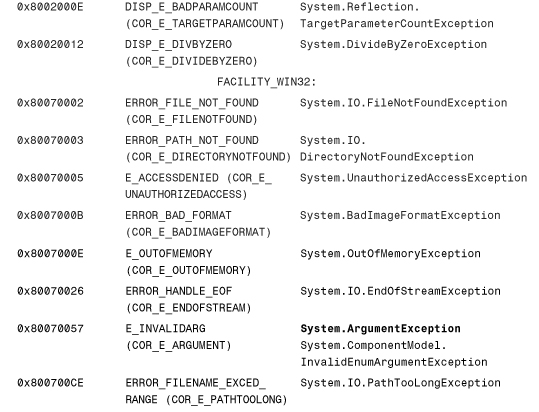
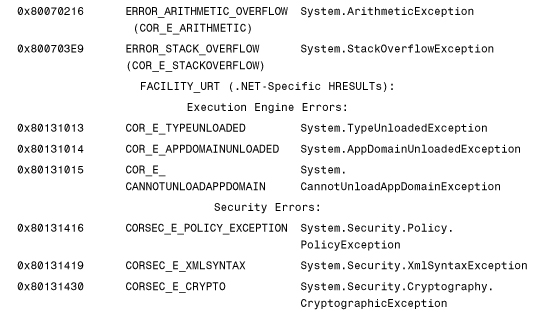
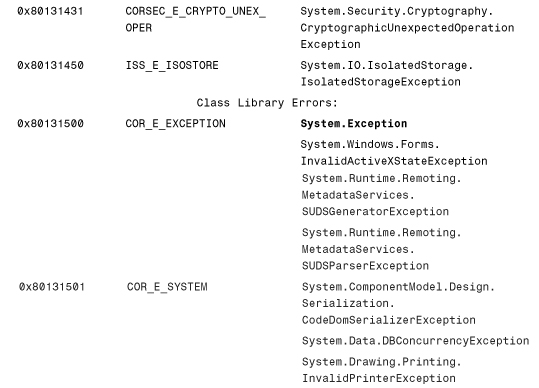
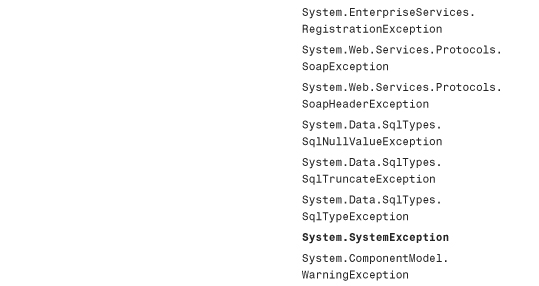

Table D.2 contains the same information as Table D.1 but lists the exception types alphabetically, to answer a .NET component author’s question, “If I throw this exception, what HRESULT will a COM client see returned?” This information can always be obtained for any .NET exception by calling System.Runtime.InteropServices.Marshal.GetHRForException (which simply returns the value in the exception’s protected HResult field).
Here are a few notes about the tables:
• For exception types that share the same HRESULT values, the bold types in Table D.1 correspond to the ones thrown when the HRESULT is returned from COM and exposed to .NET as an exception (shown in Appendix C).
• The italicized exception types derive from (or are) System.Runtime.InteropServices.ExternalException, indicating that their HRESULT values could be easily set to any value—not just the values listed.
• Some exception types listed in Table D.2 have no default HRESULT value; they are always constructed with a value specific to an error-causing situation. These six exception types are not listed in Table D.1.
• Any listed names beginning with ERROR are Win32 error codes that must be added to 0x80070000 to get the listed HRESULT value with FACILITY_WIN32.
• A few HRESULTs have multiple names, because some .NET HRESULTs (beginning with COR) are defined with the same value as classic COM HRESULTs. A list of named .NET HRESULTs can be found in CorError.h.
Table D.2. HRESULTs Listed Alphabetically by Exception Type

